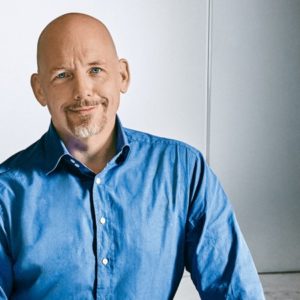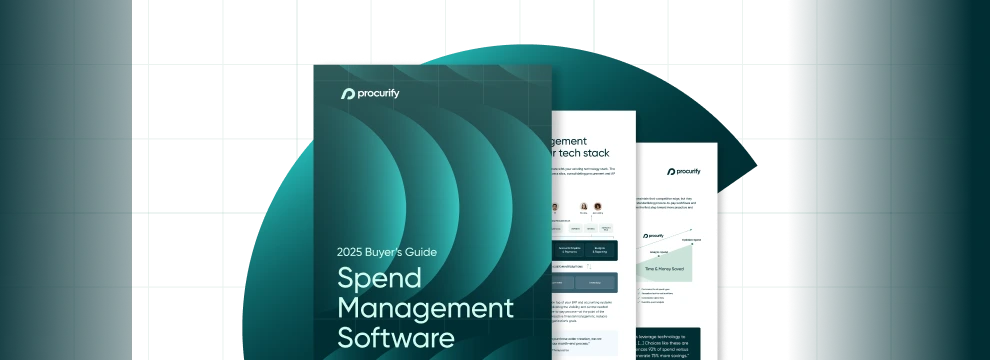How SMBs Can Make the Road to Recovery in 2021 With Scott Omelianuk
Scott joined Inc. at a time when his ability to adapt to new circumstances would be tested like never before: January 2020.
Shifting in the wake of the COVID-19 pandemic, Inc. launched a new annual recognition program, Best in Business, to showcase companies trying to do good instead of doing well. Describing the program, Scott says, “Are they making a difference in the world with their clients, their consumers, with a community?”
With a cautiously optimistic eye on the future, Scott explains how and why brands need to get comfortable with getting personal.
Introducing Scott Omelianuk, Editor-in-Chief, Inc. Magazine

💵 What he does: Editor-in-Chief of renowned business magazine and website Inc.
💡 Key quote: “Uncertainty is always a problem for businesses, and is probably going to end up being more and more of a certainty — it’s something we’re going to have to get used to.”
👋 Where to find him: Twitter | LinkedIn | Inc. articles
Listen to the episode here
Listen to Spend Culture: Stories of CFOs and Company Culture
Episode summary
Following your interests in your career doesn’t just make it easier to get up on a Monday morning: it can lead you to opportunities you never anticipated.
Scott Omelianuk is the Editor-in-Chief of the prestigious business magazine and website, Inc.. He started out in journalism but took several professional detours, all of which added up to make him perfect for this role.
In this episode of Spend Culture Stories, Scott explains what he needs from the finance team as an editor, why brands need to rethink their relationships with customers in the wake of COVID-19, and how to face uncertainty with optimism instead of fear.
Having moved from running a media brand to consulting, teaching, and now managing Inc., Scott knows about pivoting. “I feel like I have lived a couple of different careers,” he says.
During the COVID-19 pandemic, the traits that made a company successful shifted. Being kind became cool. Being adaptable became essential. And Inc. shifted its perspective, too.
The metrics are different now, Scott explains. “Are they making a difference in the world with their clients, their consumers, with a community? This is a really important thing to recognize. It represents the best of what a business can be. It’s not just about making money for the people on our list.”
With a cautiously optimistic eye on the future, Scott explains how and why brands need to get comfortable with getting personal.
Top takeaways from this week’s conversation
Don’t just go to your customers when you want their money 👋
Like phones, cars, and jeans, brands don’t last as long as they used to. In most industries, consumers have more choices than ever and easier access to your competitors. “One mouse click and brand loyalty is gone,” Scott says.
One way to break that trend is to build a relationship with customers that feels more familiar than the traditional seller/buyer dynamic. “Have communication with your consumer that’s not always transactional: ‘Don’t just contact me when you want my money,’” Scott says. “‘Let me know you care about me.’”
That means no more seeing customers as dollar bills on legs. As Scott explains, “Being empathetic to the consumer and understanding their issues and their concerns — not just with respect to the product but with everything that’s going on with them — will build longer lasting relationships. And that means you’ll have a longer lasting brand.”
Your business and your company are not the same thing 📼
Your business is what you’re selling right now: Your company is more like the service you deliver. The latter needs to adapt with the market.
For example, Scott points to Blockbuster as a famous failure that didn’t understand this distinction. Blockbuster, he says, thought its company was about “video tapes and late fees,” when actually, that was just its business. The company was really about bringing entertainment to people. It failed to see that, and consumers moved on.
“The company and the business are two different things. So how can you, as a company, understand your DNA, and then slip from one business to another in a planned, intelligent way?” Scott says.
Finance plays a part in this. “The savviest finance people I’ve worked with all understood that they were on two timelines. One was the more immediate one, making sure that what came in was what was going out. But the other piece was figuring out how to fund the next opportunity, figuring out how to get to the next timeline of your business,” he says.
Companies hate uncertainty, but it’s time to embrace it 🎢
COVID-19 may be the most dramatic example of world-changing disruption any of us experiences. But the uncertainty we’ve all been living with has been around forever, and it won’t end when the pandemic does.
The silver lining is that during 2020, it became clear that leaning into change can lead to unexpected benefits. Many companies that were able to adapt learned better ways of doing things and how to improve their employees’ experiences.
“We have a choice as to how we react to fear and uncertainty,” Scott says. “We can decide to buckle down and ride this down to the end of the S-curve. Or we could convert that fear to a fierceness about how to attack the problem and change it. Doing those things will give us so much more opportunity. And that’ll be so exciting to see.”
Top highlights from the podcast
Landing the Inc. spot
[3:39] “I’ve spent most of my career in media, but I was always entrepreneurial and interested in new technology. When we sold the media brand I ran to private equity, I was ready to go off and do something else. Given my experience as someone who had lived through the disruption of media by technology, I had a lot to offer other businesses. I opened a consultancy and started teaching at university. Then about four years into that, the CEO of the company that owns Inc. [Mansueto Ventures] contacted me and said, ‘You could put together your prior career with the one you’re in now and do something special.’ It was something I couldn’t turn down.”
During COVID-19, a CSW trumps an MBA
[7:25] “Businesses were faced with supply chain issues, changing customer habits, and finding other ways of buying products. Without those consumers, how are you going to make payroll and rent this month? Every part of a business was challenged, but probably nothing more than the human element. Suddenly, if you were in leadership, being a certified social worker (CSW) might have been more useful than having an MBA. You were spending more time making sure your employees were both physically and mentally healthy, and able to balance life and work. All of that became such an issue.”
Reshaping an iconic brand over Zoom
[9:40] “It was hard because I had just walked into a new place, I didn’t even know all the names of my team members, and suddenly we were working from home. I was charged with moving the brand in a new direction and adding energy, and I was trying to do that with people who’d been there for years, and doing it over Zoom. I’m not saying I had it any worse than anyone else: but when you are faced with those challenges, they become real existential issues. I’m actually afraid that when we go back to the office, there are going to be people who come up to me and because of their camera lens, I’m not going to recognize them! It’s going to be strange.”
Would your brand be missed?
[14:16] “Famous marketer Seth Godin once said that the indicator of whether or not you really matter is, if you were gone tomorrow, would you be missed? That’s a really important question: We’re going to miss the people or the brands we like, and we’re going to like the brands that treated us as more than just a revenue source.”
The road to recovery in 2021: choose courage over fear
[28:50] “There’s no question that as a society and as a species, we are faced with great challenges. We’re going to be faced with employment challenges as AI and the Internet of Things grow. We are faced with climate challenges, water scarcity challenges. We can throw up our hands and fall down to the ground, or we can think about how we will solve these problems. Intelligently attacking them rather than responding to them in fear will make a difference. We’re in a really important moment in history. The pandemic has accelerated a lot of these ideas, but they were coming anyway. How we respond and how we frame the problems we have will make all the difference in the world.”
Roaring Twenties 2.0
[33:32] “The world after the influenza pandemic of 1918 and 1919 suddenly saw an explosion of consumerism, an explosion of social tradition being upended, and people being optimistic and excited to be out and about, spending and partying and having a great time. It led to the Roaring ‘20s. (Which led to the Depression, but hopefully we have financial instruments in place that will avoid that!) I do think there is a lot of hard work still to do, and a difficult journey. There’s going to be a lot of excitement and a lot of pent-up consumer demand, and money that’s been saved by consumers, if not in the first and second quarter, ultimately in the back half of 2021 and into the future.”
Our favorite quotes
[6:33] “You likely are going to fail at least once. It’s what you take away from that, what you learn from that experience, and how you apply it the next time you try.”
[9:20] “There are businesses where remote work works better than others. If you’re a writer, you can go off by yourself and be in a closet and that’s OK. But there are other aspects of producing media that really is a collaborative, in-the-room-together process, and losing that is hard.”
[22:55] “Something that entrepreneurs are really terrific at is having the savviness and the scrappiness and the ability to see the pivot and see where the opportunity is. Entrepreneurs actually have a lot of skills to succeed in this pandemic, or whatever comes after it.”
[35:30] “I would tell everyone, work at the place that sees a future that’s different from what this moment is right now. It’s better to work at the place that is embracing that change, because the ones that are resistant to it aren’t going to be around.”
Subscribe and help us grow
Did you enjoy the podcast? Subscribe to the Spend Culture podcast on Spotify, Apple Podcasts, or wherever you listen to podcasts. If you have an extra 10 seconds, please leave us a rating or review to help us grow. Have recommendations for future podcasts? Contact our host at dani.hao [at] procurify.com.
